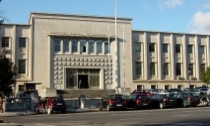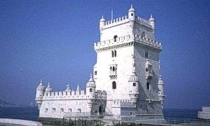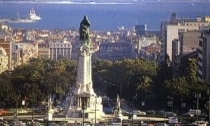Venue
The course will take place at LNEC , located in Lisbon, Portugal.
The Laboratório Nacional de Engenharia Civil – LNEC, established in November 1946, is a public Science and Technology institution, which is subject to Government supervision through the Ministry of Public Works, Transports and Communications. Its competences, as refers to the definition of strategic guidelines, are performed in articulation with the Ministry of Science, Technology and Higher Education.
LNEC carries out research activities in the fields of: public works, housing, town planning, environment, water resources, estuaries, coastal areas, transportation and communication networks, materials industry, building components and other products. The main purpose of these activities is to contribute to:
- the quality and safety of works;
- the protection and rehabilitation of the natural and built patrimony;
- the technological modernisation and innovation in the building sector;
- the minimisation of natural and technological hazards;
- the development of natural resources from a viewpoint of sustainable development.
Lisbon
Lisbon (in Portuguese, Lisboa) is the capital and largest city of Portugal. It is the seat of the district of Lisbon.
The westernmost capital in Europe, Lisbon is located in the west of the country, on the Atlantic coast at the point where the river Tagus (Portuguese Tejo) flows into the Atlantic Ocean. The city occupies an area of 84.6 km2 and, unlike most major cities, the city boundaries are narrowly defined around the historical city perimeter. This gave rise to the existence of several administratively defined cities around Lisbon, such as Loures, Amadora, Oeiras and Cascais, which in fact are part of the metropolitan perimeter of Lisbon.
 |
 |
 |
The historic centre of Lisbon is built on seven hills, making some of the city's streets too steep for motor vehicles; the city is served by three funicular services and one elevator. The western side of the city is mainly occupied by the Monsanto Natural Park, one of the largest urban parks in the world.
For further information on Lisbon, see, for example, (www.lisbon-guide.info/about).
Emergency number: 112 (medical and police assistance)
Telephone country code: 351
Currency: Euro (€) (100 cents); 1 € = ± 1.43 USD; 1 € = ± 0.80 GBP
Weather: Lisbon lies in both the Atlantic and Mediterranean climatic zones, thereby enjoying a pleasantly temperate climate year-round. Its mean annual temperature is 17°C (63°F), with average temperatures in winter of 13°C (55°F) and 27°C (80°F) in summer. Even when summer temperatures reach the mid-30s, the proximity of the Atlantic Ocean insures some cooling breezes. July and August are the hottest, driest months, while November to February are the wettest and coldest months . In November the daily temperatures vary between 11.0° C and 18.0° C ; average rainfall depth is around 110 mm (43.3 in) .
Banks and currency exchange: Opening hours are from 8:30 to 15:00, Monday through Friday. Some banks in Lisbon and other tourist areas may have longer openings hours. Most hotels will also exchange currency for guests. There are automatic teller machines (ATM), usually located in connection with a bank branch, which accept a variety of international credit cards. The accepted cards are indicated on the ATM.
Credit cards: Major credit cards are widely accepted by most hotels, restaurants and shops.
Shopping hours: Most shops are open from 9:00 a.m. to 7:00 p.m., Monday through Friday; and 9:00 am to 1:00 pm, Saturday. Lunch hours are between 1:00 pm and 3:00 pm. A few department stores and supermarkets have longer opening hours and are also open on Saturday afternoon and Sunday.
Power supply: 220 Volts, 50 Hertz, 2 pin plugs.
Transportation
Lisbon airport: Portela airport is located seven kilometres north of the city centre. Carris AeroBus no. 91 leaves the airport every 20 minutes from 07:45 to 20:15 and takes about 20 minutes to reach the city centre. Taxis are available 24-hours a day. The average taxi fare to the city centre is €10 - €15 (ride time 15-30 minutes).
Lisbon local transportation: Lisbon is well served with public transportation services. Bus company, Carris (www.carris.pt), operates an extensive system of buses, trams and funiculars. The subway system - Metro (www.metrolisboa.pt) provides a fast and efficient service throughout the centre of the city and beyond and features works by prominent artists. The Metro and Carris offers a variety of fares, comprising: fares exclusive to the Metro or to the Carris, and combined fares between companies, and fares combined with other transport operators and intermodal fares.
Near the conference venue, local buses 44, 45 and 83 run to the city centre. The nearest subway station is Alvalade (green line).
Train: The Portuguese national railway company, CP (www.cp.pt), provides an excellent service covering the whole of the country.
The main departure points to other national and international destinations are the Estação de Santa Apolónia and the Estação do Oriente served by bus and subway.